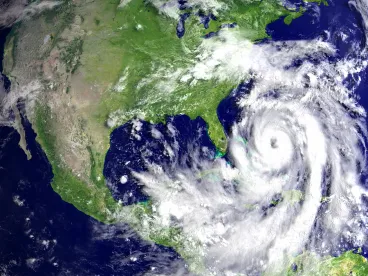Hurricane Harvey and Hurricane Irma serve as a reminder that employers have some legal obligations to employees during natural disasters.
Employers should have a plan in place when preparing for a natural disaster, such as an inclement weather policy, a communications plan and a crisis management plan, and should be mindful of the below tips when creating a crisis management plan to avoid employment-related lawsuits and/or agency action after a disaster.
Employee Safety
Employers must exercise caution if asking employees to assist with preparing for and cleaning up after a natural disaster. Employers are responsible for the safety and health of their workers and for providing a safe and healthy workplace, which includes protecting workers from anticipated hazards associated with preparing for and cleaning up after a natural disaster. Employees who lack the proper training to perform such work face significant risk and may fail to heed necessary precautions when assessing or cleaning up damage to the workplace. Alternatively, employers may do well to consider contracting with a professional disaster recovery service to minimize risk to employees post-disaster.
Employers should review the Occupational Safety and Health Administration’s (OSHA) guidance for handling hazardous conditions before a natural disaster strikes and incorporate that guidance into their crisis management plan. Visit the U.S. Department of Labor’s Occupational Safety and Health Act (OSHA)’s website for additional information on workers’ rights, employers’ obligations, and other services required under OSHA.
Compensating Workers for Work Performed
- Exempt Employees: Employers may have to close their business in the middle of a workweek or pay period due to a natural disaster. When this occurs, employers are required under the Fair Labor Standards Act (FLSA) to pay an entire weekly salary to exempt employees who are paid on a salary basis if they work any portion of the workweek.
- Nonexempt Employees: Employers are generally not required under the FLSA to pay nonexempt employees if the employer is unable to provide work to those employees during a natural disaster. Instead, hourly workers must be paid for the actual time they work.
- Actual work: Employees may be forced to take on new responsibilities to aid in preparing for or cleaning up after a natural disaster. For example, a security guard may be tasked with cleaning up debris after a storm. Although the security guard’s duties don’t typically include cleaning up the store, the employer must compensate the guard for all time worked. An employer must compensate an employee for performing any activity that is primarily and necessarily for the benefit of the employer.
- Volunteers: After a natural disaster, employers may receive offers from employees to volunteer with the employer’s recovery process. An employer must exercise caution when deciding whether to allow workers to “volunteer” with such efforts, as employers may be required to compensate “volunteers” who perform work that can be construed as compensable time worked. In addition, private non-profit organizations must compensate employees who “volunteer” to perform the same services they ordinarily perform in the regular course of business.
- Working remotely: After a natural disaster, employers may have no choice but to allow their employees to work remotely. Even if working remotely isn’t typically permitted, employers may wish to implement a mechanism to capture time worked at home before and after a disaster strikes. If the employer doesn’t have a proper mechanism to capture and record time worked remotely, then it can be exposed to liability under the FLSA, state or local wage and hour laws, and obligations under specific employment contracts.
Requests for Leave
Employers typically receive an influx of requests for time off from employees immediately before and after a natural disaster. Although employers are not required to provide employees time off in all circumstances, such as to clean up damage to their personal property, there are certain situations in the aftermath of a disaster in which an employee may qualify for time off under the Family Medical Leave Act (FMLA).
Post-disaster, employers should be mindful of employees’ need to take legally-protected leave. The trauma and stress of the storm or the storm’s aftermath may trigger anxiety, depression, or a mental illness, not to mention possible physical injury, and the employee may be eligible for FMLA leave to care for herself or a close family member. In addition, the employer may also be required to provide leave as an accommodation pursuant to the Americans with Disabilities Act (“ADA”).
Takeaways
There are a number of employment-related issues employers must consider when creating an inclement weather policy or crisis management plan. Consult with Polsinelli’s Labor and Employment attorneys before creating your policy or plan to minimize employment-related risks.




 />i
/>i

